Voice and Matter is the fourth annual Communication for Development conference arranged by Ørecomm – Centre for Communication and Glocal Change, this year merged with Roskilde University’s biannual scientific conference, Sunrise.
When? 17-20 September 2014
Where?Roskilde University (Denmark) & Malmö University (Sweden)
Theme
When Nick Couldry published his book ’Why Voice Matters – culture and politics after neoliberalism’ in 2010, he delivered a strong critique of neoliberalism and it’s lack of ability to provide the means for people to voice their opinions. He also criticized the media for reinforcing neoliberal values. However, possibly the most important point he raised was that gaining voice is not enough – not enough for society to change, not enough for the material conditions we live under to improve, and for other visions of society to thrive.
While voice, and the polyphony of concepts related to it – such as participation, agency, narrative and civic engagement – is crucial in any vision of democracy and a just society, it is of vital importance for those whose life depends on the material dimension of development. For them, gaining and exercising voice relates directly to critical matters like life conditions, health services, employment, education and environment.
In Academia there is debate about a “material turn” in the humanities as well as in the social sciences, that is, a renewed interest in the relation between the material and power. The Internet of Things is an emerging research area where the notion of infrastructure attains a new meaning that challenges the still prevailing dichotomy between spirit and matter.
Voice and Matter aims to explore the dynamic relationship – and possible convergence – between voice and matter in the context of communication for development theory and practice.
Call for Abstracts
We invite researchers, students, practitioners, authors, artists, filmmakers and entrepreneurs to submit abstracts within five different work-streams.
- New Social Actors and ICT for Development. The technocentric concept of ICT4D raises questions on the power over and use of technology. Who are the new social actors and new social movements? How do they pursue their goals using ICTs? This session invites theoretical and empirical reflections, uncovering emerging perspectives on technology, voice and matter.
- ICT4D Without ICT4G? As photos of all-male ICT4D conference panels and technology fairs dominated by men are circulated on social networks, questions about gender issues in ICT4D research and practice are more pressing than ever. This panel invites theoretical reflections and innovative case studies on gender, power and the future of ICT4D.
- The Present and Future of Development Journalism International development journalism is exploring new avenues to connect with different audiences and to communicate social change. This panel highlights new innovative approaches as well as discussing the challenges and limitations in an age where ‘everybody is a broadcaster’.
- Fiction Matters Recent decades have in many parts of the world brought new genres of fiction to critical acclaim. New authors engage with movement, migration and change in ways that are debated globally. This panel will explore fiction, that in new ways engage with the relation between the social and the global, and between voice and matter.
- Histories of Diaspora Nation-states and national mentalities have shaped societies we live in through reductive classifications. New methods now move beyond this logic, allowing for improved understanding of the changing role of the state over time, and for new transcultural encounters. This panel explores methods in approaching the diaspora context in space and time.
Deadlines
- Submission of abstracts are accepted until
23 May 2014, oo:oo (CET) 10 June 2014 (oo:00 CET, extended deadline).
- Accepted abstracts will be announced individually by 6 June 2014 (if you submitted an abstract before 23 May, you will still hear back from us by this date)
Guidelines
- Email your abstract to orecomm@gmail.com with the subject “Voice & Matter Abstract”
- Number of words for abstracts: 200-300
- Abstracts must include the presenter’s name, affiliation, email and postal address.
- Please name your abstract in the following way: name+surname_abstract
Questions?
You are welcome to forward any questions to orecomm@gmail.com.
More information
Please feel free to share this call for abstracts with colleagues, partners and friends.
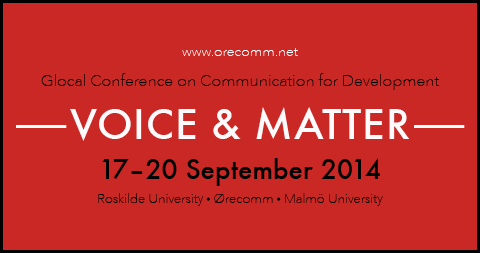
About
Voice and Matter is the fourth annual Communication for Development conference arranged by Ørecomm, this year merged with Roskilde University’s biannual scientific conference, Sunrise.
The 4 day conference is free and open to anyone with an interest in Communication for Development. Academics, practitioners, artists, filmmakers, activists and entrepreneurs – we invite actors across the whole field to take part. We believe that the practical side to the Communication for Development field is as important as the theoretical studies, and we want this to show among our participants.
We hope that you will enjoy the opportunity to network with international communication and development experts, to be challenged and inspired, as much as we do.
Programme
The programme will offer a mix of keynotes, paper presentations, workshops, panel discussions, film screenings and exhibitions dealing with communication for development and this year’s theme: Voice and Matter
Panels and workshops will discuss issues such as:
- The role of media and communication in the post 2015 agenda
- Media, empowerment and civic agency
- Participatory video and interactive documentary
- Cultural Studies and ComDev: Remembering Stuart Hall
- Voice and the Return of the Politics of Hope
- Political Economy of the Development Industry
More information
A website with practical information and programme is underway. In the meantime, we hope that our Concept Note will catch your interest.
When? 17–20 September 2014
Where? Roskilde University (17-18 Sep) and Malmö University (19-20 Sep)
Concept Note
When Nick Couldry published his book ’Why Voice Matters – culture and politics after neoliberalism’ in 2010, he delivered a strong critique of neoliberalism and it’s lack of ability to provide the means for people to voice their opinions. He also criticized the media for reinforcing neoliberal values. However, possibly the most important point he raised was that gaining voice is not enough – not enough for society to change, not enough for the material conditions we live under to improve, and for other visions of society to thrive.
While voice, and the polyphony of concepts related to it – such as participation, agency, narrative and civic engagement – is crucial in any vision of democracy and a just society, it is of vital importance for those whose life depends on the material dimension of development. For them, gaining and exercising voice relates directly to critical matters like life conditions, health services, employment, education and environment.
In Academia there is debate about a “material turn” in the humanities as well as in the social sciences, that is, a renewed interest in the relation between the material and power. The Internet of Things is an emerging research area where the notion of infrastructure attains a new meaning that challenges the still prevailing dichotomy between spirit and matter.
Voice and Matter aims to explore the dynamic relationship – and possible convergence – between voice and matter in the context of communication for development theory and practice.
Welcome!
Workshop Invitation
Ørecomm – Centre for Communication and Glocal Change – invites local start-ups, social enterprises, organisations and decision makers in the Öresund region to discuss their ideas with global communication and development researchers.
The goal of the new GoComm project is to create a cross-border space for mutual learning, exchange and advice. GoComm looks beyond traditional development cooperation models and emerging markets and link academia to innovative ideas from the public and private sphere, including (social) entrepreneurs, start-up companies, volunteer efforts and new hybrid models of global engagement. By harnessing innovative new ideas, proven best practice and expertise from different sectors, GoComm aims at doing good well, translating initial networking into longer-term reflective interactions.
GoComm’s inaugural workshop will take place at Malmö University on 24 April 2014.
We would like to see you there!
→ Programme
What can you Expect from us?
- Research based advice on communication and development work
- Global networking opportunities – with partners on all five continents
- Experience in establishing global partnerships
- A decade long experience in global higher education teaching and training
Who Should Participate?
Start-ups, social enterprises, organisations and decision makers with an interest in:
- How local ideas can create positive sustainable global change
- How communication for development can support such initiatives
- New forms of engagement outside the established frameworks of global co-operation
- Sharing their best practices, strategies and experiences
About Gocomm
GoComm looks beyond traditional development cooperation models and emerging markets and link academia to innovative ideas from the public and private sphere. By harnessing innovative new ideas, proven best practice and expertise from different sectors, GoComm aims at doing good well, translating initial networking into longer-term reflective interactions.
Reflecting new modalities of cooperation that challenge traditional dichotomies of ‘aid’ or ‘trade’, the Örecomm-GoComm project brings together the global expertise of the two partner universities in the Öresund region to connect with local enterprises, organisations and initiatives on innovative international development ideas, concepts or projects.
Since 2008 Malmö University and Roskilde University have started to cooperate closely in their jointly managed Ørecomm – Centre for Communication and Glocal Change. Funded by EU’s Interreg IV A programme, the GoComm project is the emerging interface between local and global dimensions. It will focus on bringing global expertise and local Danish and Swedish development initiatives into contact, to ensure knowledge sharing as well as creating a critical and constructive European hub for dialogue.
www.orecomm.net/activities/gocomm/
About Ørecomm
Ørecomm is a collaboration between Malmö University and Roskilde University, dedicated to research in the Communication for Development field. Researchers connected to Ørecomm are active in international research, teaching and advisory projects around the world. Current partners include UN organizations, NGO’s and universities on all five continents.
www.orecomm.net
How to Register
→ Register here no later than 21 April.
Maximum number of participants: 25
When and Where?
- 24 April 2014, 10 am–15.30 pm
- Malmö University, MEDEA, Östra Varvsgatan 11 A
Questions?
Welcome!
by Ulrica on 2014 March 7 12:50
“The fact that we are standing here today at a Social Media Week is I think indicative of how some of the broader dynamics in research and communication for development are changing.”
Ørecomm participant and ComDev researcher Tobias Denskus, starts out his presentation at Danish Design Centre, Copenhagen. And he is right; the development communication work of today faces a multitude of new forms of engagement. Linking empirical research, communication work and social media engagement in meaningful ways is a challenging task for researchers, practitioners and policy-makers. We are only beginning to understand the chances and limitations of ‘digital development’ work.
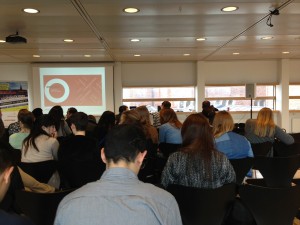
For Ørecomm as a research centre Social Media Week offered a golden opportunity to not only discuss these challenges, but also present our new project GoComm and reach out to possible partners.
How can development researchers be more innovative and attuned to local realities in the Øresund region? How can we encourage dialogue between social science research and social entrepreneurship? These are two of the questions that mark the starting-point of GoComm. The long-term aim is to create an incubator-type space for mutual learning, exchange and advice between development researchers and social entrepreneurs or others who are looking to engage in development initiatives.
“We are embarking on an exciting process, but there’s also a lot of uncertainty. We don’t want to create new projects, we want to help develop already existing ideas or projects and make them more relevant for developing countries, more sustainable,” says Tobias Denskus.
Lene Bull Christiansen, assistant professor in cultural encounters at Roskilde University, presented a snapshot of her current research on Denmark’s well-known fundraising campaign ‘Danmarks Indsamling’. Her critical analysis of the tools and images that traditional notions of ‘development’ still convey in mainstream media was an important reminder about the skills that researchers can bring to discussing development initiatives.
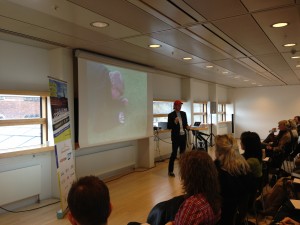
For the same reasons we brought IT entrepreneur Jacob Vahr Svenningsen with us, as an example of how things can be done differently. Jacob runs the small-scale company eGro, which aims to provide sustainable agriculture models in rural emerging markets. This is achieved through low-tech e-learning concepts such as cartoons and video.
How did it go today?
To be honest, I’m mostly used to pitching business ideas to investors. This was something else! It was actually a challenge explaining this journey I have made.
How do you feel about working together with Ørecomm?
I love it! I think it’s really important to combine resources and ask ourselves how we make the things we do relevant. How are the money spent best? You can give me valuable advice on this.
Ørecomm is looking much forward to working with other start-ups and social enterprises like eGro. Hopefully we have raised interest and inspired others to take their development initiatives further in collaboration with Ørecomm and future GOComm partners. The project is also open for non-profit and governmental organizations in the region.
Read more about the project here.
by Ulrica on 2014 March 4 15:33
Don’t miss the opportunity to take part in this Kenya based PhD seminar on Studying New Media Appropriations and Socio-Cultural Changes – Methodological Challenges, taking place in May 2014.
Deadline for applications is 9 March 2014 (extended deadline) .
From the course description:
- The PhD seminar will discuss epistemological questions related to social research and address key methodological challenges studying the appropriation of new media and the interrelationship between media and socio-cultural change processes.
- The seminar will mainly focus on a variety of qualitative methods from semi-structured interviews to ethnographic observations but also address issues related to surveys and mixed methods.
The seminar is part of the Ørecomm project Critical Perspectives on New Media and Processes of Social Change in the Global South.
For more information about the seminar and how to apply, look here (PDF).
by Ulrica on 2014 February 27 11:22
This autumn, several of our Ørecomm participants will be teaching on a brand new course in Advances in Communication for Development: Social Action, Planning and Evaluation offered at Malmö University. The course responds to the needs of ComDev graduates that have requested a deeper level of study in this field, as well as development professionals seeking group work and peer learning, hands-on participation, self-reflection, and critical analysis.
The course includes the following modules:
-
Communicating and Planning Social Action (7.5 ects)
Explores social action as an agenda setting process offering specific tools to assess and critically analyse different communication strategies for social change including a breakdown of behaviour change theories.
-
Evaluating Social Action (7.5 ects)
Focuses on monitoring and evaluation of ComDev interventions, including critical engagement with a range of different approaches and analytical methods. Students will apply the knowledge and skills they acquire to the evaluation of both their own and others communication initiatives.
Entry requirements
30 credits on advanced level in Communication for Development, Media- and Communication Studies, Development Studies or other Social Science discipline. English B.
Study Form
Flexible 50% distance, with 2 compulsory meetings.
Application will open on 15 March on www.antagning.se
by Ulrica on 2014 February 25 11:35
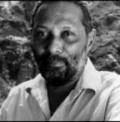 A grand old man of British cultural studies, Stuart Hall, died 10 February 2014, 82 years old. He was a man who – among many other things – contributed to developing a critical line of thinking which has been highly influential within communication for development.
A grand old man of British cultural studies, Stuart Hall, died 10 February 2014, 82 years old. He was a man who – among many other things – contributed to developing a critical line of thinking which has been highly influential within communication for development.
Ørecomm participants Thomas Tufte and Anders Hög Hansen pay tribute to his work. Read the article here.
by Ulrica on 2014 January 21 16:39
Mark your calendar for 17-21 February 2014! Social Media Week in Copenhagen is coming up, and Ørecomm has the pleasure to contribute with two panels.
We are looking forward to a great opportunity for debate and hope to see many new and old friends. Places are filling up really fast, so don’t wait to long to register.
Live stream? Yes, we are planning on live streaming the events. More information about this will be posted closer to the event.
Tuesday 18 February, 9.30-10.30 am at Danish Design Centre
Social media are widely discussed in international politics, development and humanitarian aid. Between critical discussions around ‘clicktivism’, celebrity advocacy and traditional media reporting about the ‘Third World’ lies a more nuanced debate about social media’s limitations, the chances of technology and how digital development can have an impact…
#GOComm
Thursday 20 February, 9.30-12.00 am at UN City
Thomas Tufte, Tobias Denskus and Norbert Wildermuth are some of the leading Scandinavian scholars in the field of Communication for Development. As a part of Ørecomm, they have extended academic knowledge as well as personal experiences with the interrelationship between communications and global change…
#smwc4d
The work of Ørecomm revolves around collaboration. Communication for Development is a two-way process for sharing ideas and knowledge, and we strive for dialogue in any project we engage in.
Our network consist of a core group of researchers with expertise in the Communication for Development field, but also extends to non-governmental organizations, governmental institutions and private business.
Although a majority of our activities are research based, we have a keen interest in projects and partnerships that goes beyond academia.
More information? Ideas? Don’t hesitate to contact us.
Ongoing activities:
norbert@ruc.dk
Department of Communication, Business and IT
Roskilde University
+45 4674 3871
I am an associate professor at the Department of Communication, Business and IT at Roskilde University, Denmark. I participate in the Danida funded research projects “People Speaking Back? Media, Democracy and Empowerment in East Africa” (MEDIeA: 2009-2015), the capacity building / research project “e-Governance in Bhutan” (eGiB: 2012-2014) and the Nordic Research Councils for the Humanities and the Social Sciences funded research project “Critical Perspectives on New Media and Processes of Social Change in the Global South” (2013-2015).
At Ørecomm I am involved in all major activities with a focus on e-participation; e-democracy; digital empowerment; ICT-for-social change; transparency and social accountability technologies; civic monitoring initiatives, advocay communication; non-profit social media strategies; e-governance, participatory media, and citizen media.
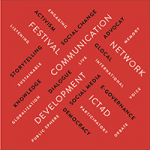



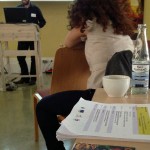

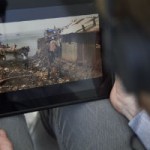
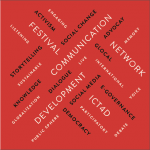
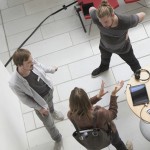
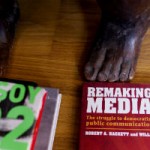
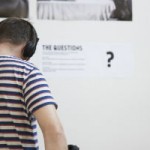
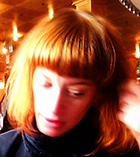
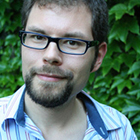



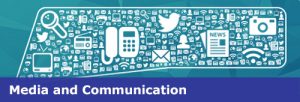 New PhD opportunities at the University of Leicester
New PhD opportunities at the University of Leicester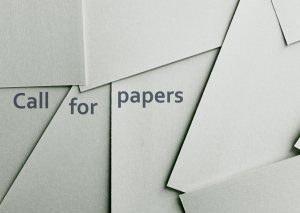 Call for Abstracts: New Directions in Media, Communication and Sociology (NDiMS) Conference
Call for Abstracts: New Directions in Media, Communication and Sociology (NDiMS) Conference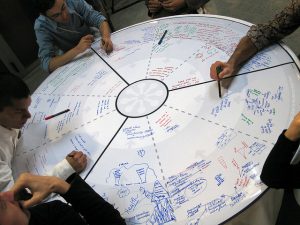 Ørecomm Team to Gather at the University of Coimbra
Ørecomm Team to Gather at the University of Coimbra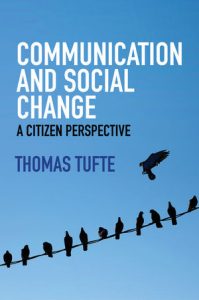 “Communication and Social Change – A Citizen Perspective” Published
“Communication and Social Change – A Citizen Perspective” Published C4D Network to Sum Up Global Communication for Development Practice
C4D Network to Sum Up Global Communication for Development Practice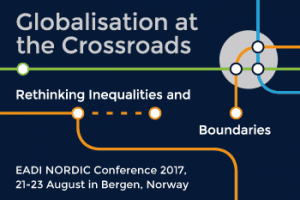 Entering Media and Communication into Development Conferences?
Entering Media and Communication into Development Conferences?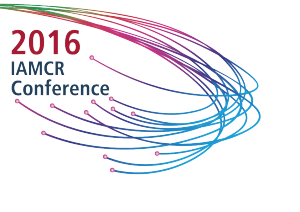 IAMCR Conference 2016: Communication for Development Highlights
IAMCR Conference 2016: Communication for Development Highlights Glocal Classroom Revisited – Storytelling & Social Change Leicester-Malmö
Glocal Classroom Revisited – Storytelling & Social Change Leicester-Malmö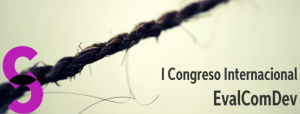 I EvalComDev International Conference: Call for Papers
I EvalComDev International Conference: Call for Papers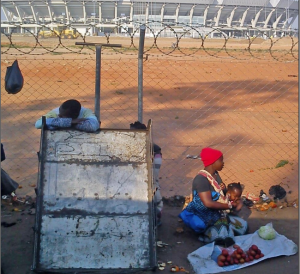 Looking for Media and Communication in Development Conferences: Devres 2016
Looking for Media and Communication in Development Conferences: Devres 2016